As is the case with most holidays, both joys and tensions abound around the Thanksgiving table and the four-day weekend. Reunions with loved ones — especially with loved ones — can quickly devolve into heated arguments about anything and everything, from politics, vaccines and critical race theory to the proper way to use leftovers.
But there’s something nearly every American can agree on: Even though this national holiday is secular, the word “Thanksgiving” opens the door to spiritual reflection.
To that end, the Deseret News spoke with six religious leaders from a wide variety of traditions — ranging from Greek Orthodox to Muslim to Baptist to Buddhist — and asked them to offer religious wisdom and practices that people can bring to the literal and metaphorical Thanksgiving table.
Their advice can help you deepen your connection to your own faith, the people around you and those further afield. And because no one religion can claim Thanksgiving as its own, it’s also the perfect holiday to build interfaith friendships, the religious leaders said.
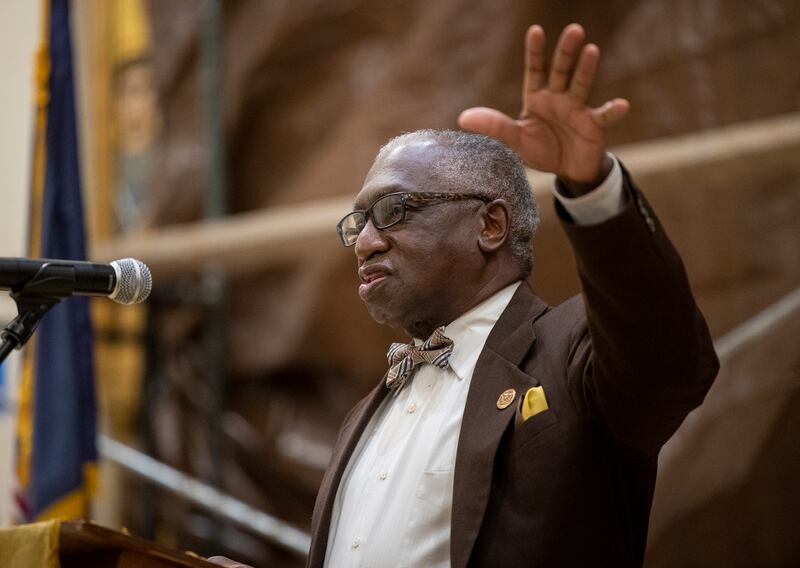
The Rev. France Davis
Pastor emeritus of Calvary Baptist Church in Salt Lake City
On Sunday, the Rev. Davis spoke at an interfaith Thanksgiving service held at Prophet Elias Greek Orthodox Church in Holladay, Utah. Ahead of the event, he told the Deseret News that the spiritual and religious thread of the holiday is that “every day ought to be a day of thanksgiving — that when you count the blessings that you receive they are more than the lack of blessings. Every day you ought to say thank you — thank you for the little things and thank you for the big things.”
The little things we should be grateful for, the Rev. Davis explained, are things like air and appetite; the big things: houses or cars.
“We all get gifts even if we don’t recognize them,” he added.
So Thanksgiving isn’t just about gratitude for what we have. It’s also about opening one’s eyes to the abundance we are taking for granted.
The Rev. Davis encouraged people to be mindful of the history of Thanksgiving and be clear about what, exactly, they are celebrating. While some Americans believe we are celebrating the country’s founding on Thanksgiving, we aren’t. “In fact, we are not celebrating the founding but the blessings that come from being in a country like this,” the Rev. Davis said.
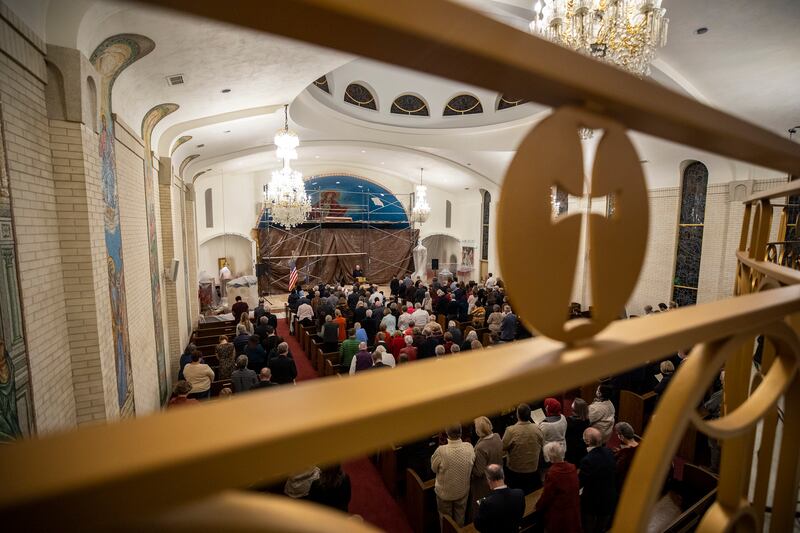
The Very Rev. George Nikas
Prophet Elias Greek Orthodox Church in Holladay, Utah
The Rev. Nikas, whose church hosted the Sunday interfaith service where the Rev. Davis spoke, reflected on the significance of sitting down together, without distractions, for the holiday — something that can seem like an act of resistance in today’s overscheduled, individualistic world.
“The family dinner has slowly slipped away in many homes,” said the Rev. Nikas. “Coming to the table as a family unit is a great act.”
As we offer thanks to God for the “bountiful blessings we receive as individuals, families or communities,” we shouldn’t ignore or forget those who don’t have anyone to enjoy the holiday with, he added.
“Whether a college student who can’t go home for the holiday or a widow or widower or someone you know whose family is far away,” we should open our homes to them and offer a seat at the table, the Rev. Nikas said.
“It’s not enough to say we care about each other, we have to put it into action,” he said, adding that the Greek Orthodox Church in Salt Lake City — a sister church to Prophet Elias — feeds about 2,000 people for Thanksgiving every year.
Working together to address social issues is a chance to find common ground, regardless of our faith, the Rev. Nikas noted, adding that Thanksgiving is, too.
“We may all have theological differences ... but we are all God’s children. We all can offer thanks to our maker, to our common creator,” he said.
And we should do so on a regular basis, added the Rev. Nikas, who explained that, in the Greek Orthodox Church, receiving communion every Sunday is a form of giving thanks. “Eucharist comes from the Greek word that means thank you — for us, the actual liturgy means ‘thank you.’”
It’s a cycle: We thank God who, the Rev. Nikas said, “continues to bless us,” giving us even more to be grateful for.
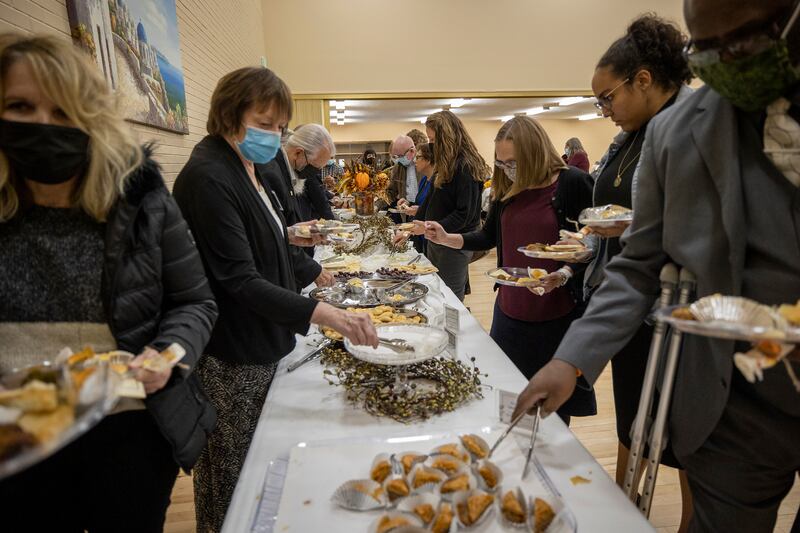
Beverley Foulks McGuire
Religion professor at University of North Carolina, Wilmington
As McGuire, author of “Living Karma: The Religious Practices of Ouyi Zhixu,” considers Thanksgiving from a Buddhist perspective, she, too, thinks about circles.
McGuire pointed to the work of the eminent Vietnamese Buddhist monk Thich Nhat Hanh, who discusses “the importance of acknowledging where food comes from and all of the things that go into making the food,” she said.
When we sit down together , we could silently contemplate the cycle of growth and production that brought the meal to the table, offering gratitude to everyone — every human hand — involved in the process, from the person who planted the seed, to the one who harvested the crop, to those who packed it and loaded it onto a truck, to the truck driver, to the employee who received the shipment and unpacked the food, the cashier and so on and so forth.
Contemplating the food we are about to eat as part of something larger reminds us of our “interdependence and connectedness,” McGuire said. Considering our place in this web of humanity can also help us extend loving kindness towards all beings.
Sometimes, it’s easier to offer compassion to a total stranger than the person sitting across the table from us — after all, the closer one is to our hearts, the greater their capacity to wound, McGuire noted. So we might begin a loving kindness meditation at our dining table, first silently offering grace and compassion to those around us. This can be “helpful for dealing with family members who are really polarized in their values,” she said.
We might also begin by “bringing to heart people we love but have difficulties with” and then we can keep expanding that circle outward — to our neighbors, to our colleagues — until it encompasses “all living beings in the world,” McGuire said.
We can also use theThanksgiving holiday as an opportunity to reflect on how we treat others, McGuire added, noting that, in Buddhist monastic practice, the monks assess the “virtue of whether they’re worthy of the food being offered.”
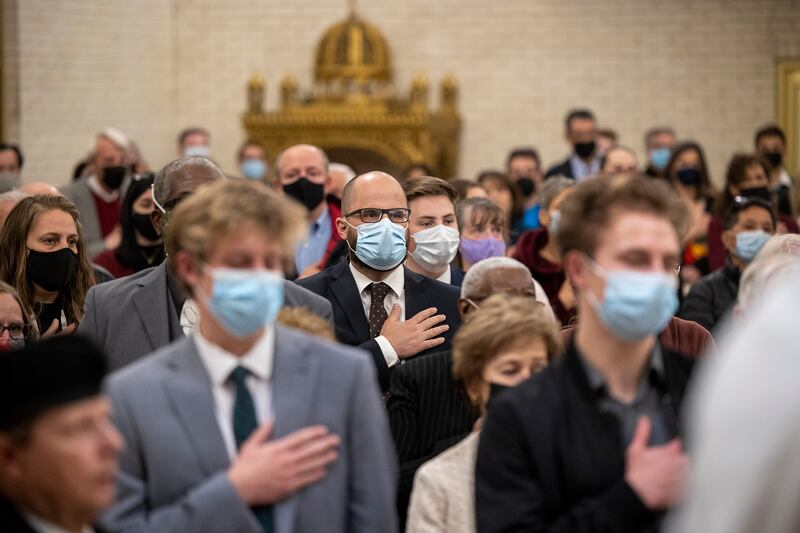
Dawud Walid
Imam and executive director of the Council on American-Islamic Relations’ Michigan chapter
Walid said the practices of thanks and gratitude that he and his family will do on Thanksgiving are already part of their everyday routine as Muslims.
“Every meal for religiously observant Muslims begins with praising God at the beginning of the meal and thanking God for the meal (afterwards),” he said.
At his own holiday table, Walid, his wife and children, and their guests also partake in the family’s daily gratitude practice: “During the meal, around the tail end, we list three things we are grateful for.”
Walid explained that this daily ritual is rooted in Islam.
“The Quran says give thanks and God will increase you. It is a divine principle that the more we give thanks the more blessings come into our lives,” he said. “The inverse of that is that if we are angry and don’t show gratitude then we are cutting off our blessings. The other principle is that instead of looking to people who have more and coveting what they have we should be looking to the least of us for one so we can help them and for two to remind us how much God has given us so we can be grateful.”
For Muslims, hospitality — whether during Thanksgiving or any other time — is also rooted in religious belief. Not only was Ibrahim (Abraham) known for his hospitality but Islam holds that “every person (walking) this earth … has angels who accompany them,” said Walid, who added that those angels don’t get checked at the door when you have a visitor.
“When we invite people to the home, you have more angels in the home,” he said.
This year, Walid and his family will host three different families in their home for Thanksgiving. That’s a lot of angels.
“For us, the more the merrier,” Walid said.
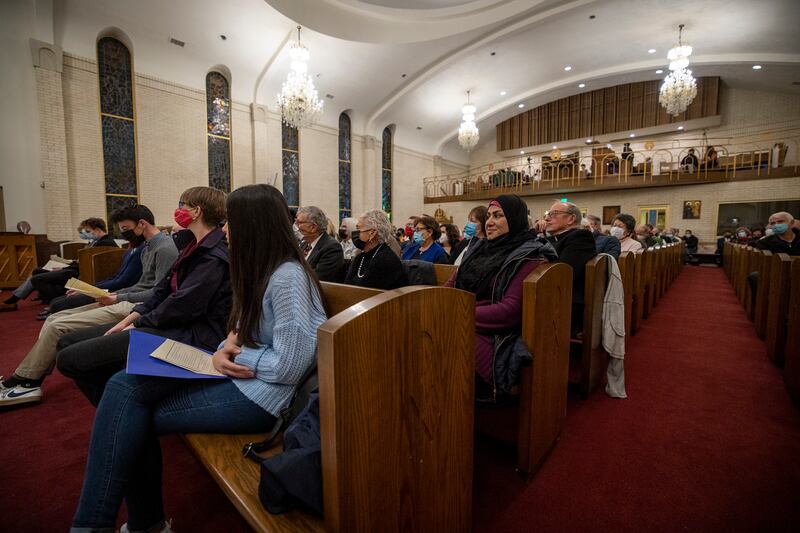
Rabbi Esther Lederman
The Union for Reform Judaism’s director of congregational innovation
For Rabbi Lederman, Thanksgiving brings to mind a number of Jewish values and texts, among them the practice of “hachnasat orchim,” or hospitality, which is rooted in the story of Abraham and Sarah.
Not realizing that the guests they were inviting into their tent were really angels, Abraham and Sarah “wash their feet and prepare food and bring them into the space and that echoes the idea of what it means to be in community,” Rabbi Lederman said.
Even before the pandemic, Rabbi Lederman said, the country was suffering from an epidemic of loneliness. We should help others break their isolation, she added.
Rabbi Lederman also pointed out that, for some Americans, this holiday will be the first family gathering they attend since the pandemic began.
In Judaism, there is a blessing that is said on many occasions, including when we are reuniting with someone after a lengthy separation. Known as the shehecheyanu, the short prayer thanks God for bringing us to this moment.
Gathering with loved ones in person after not seeing them in the flesh for a long time is like reviving our souls, Rabbi Lederman added. Especially amid the pandemic.
But just because we’re getting together after so long doesn’t mean our meals will be free of tension. Luckily, Judaism also includes advice for how to handle debates that might pop up at the Thanksgiving table. According to Judaism, we shouldn’t shy away from productive arguments.
“You’re supposed to rebuke people you love if they’re doing things or saying things that are hurtful or harmful,” said Rabbi Lederman, who explained, “You are supposed to rebuke that person so you will not hate them in your heart.”
But if your words will fall on deaf ears and will just “lead to more hate,” she added, then it’s probably better not to say them.
When sitting across the table from someone who we have difficulties with — whether now or in the past — we can turn to the Jewish idea of “b’tselem elohim,” said Rabbi Lederman, the concept that everyone is made in God’s image.
Seeing God in each person we encounter or “understanding them as a child of God even if they have opinions that are so anathema to who you are,” she said, can help us set aside differences and treat people with love and compassion.
Like the Rev. Davis, Rabbi Lederman added that our joyful celebrations of Thanksgiving should be prefaced by reflection on more difficult aspects of our country’s history.
“It’s a complicated holiday,” she said. “One of our phrases has become ‘education before celebration.’ We’re not celebrating the myth of Christopher Columbus and the pillaging of native indigenous land in this country.”
We could start our Thanksgiving meal by doing a land acknowledgment — that is, a statement recognizing that we are on tribal land. It’s important that this act be sincere, Rabbi Lederman said, and not just an empty gesture of virtue signaling.
In Judaism, Rabbi Lederman explained, “We think about space as sacred, too, and land is sacred, as well.”
And, Rabbi Lederman added, we might end our meal with the birkat hamazon, a lengthy blessing that is said after eating. “I love the idea of saying the longest blessing afterwards,” she said. “When you’re satiated is when you’re most likely to forget to be thankful.”
Thus, we might contemplate what it means to offer gratitude when we’re no longer hungry.
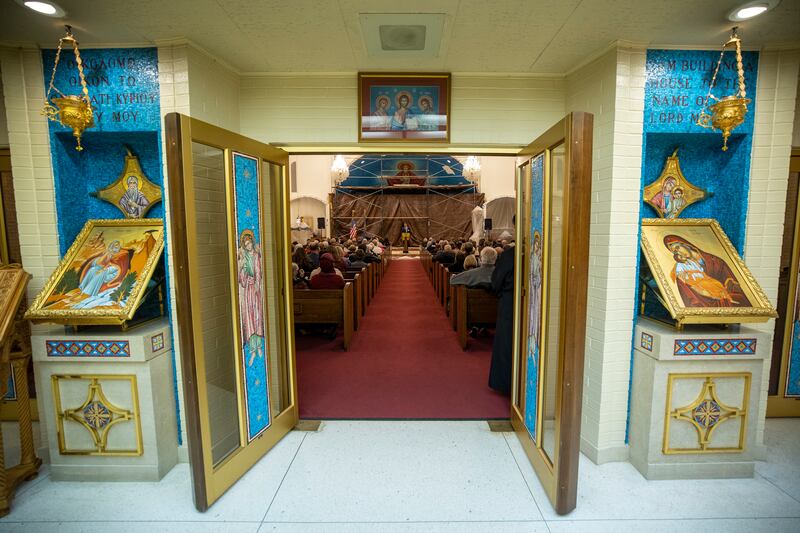
The Rev. Brian Parcel
Lead pastor of First United Methodist Church in Chula Vista, California
For the Rev. Parcel, Thanksgiving isn’t just a one-day celebration. Rather, he leads his congregation in contemplating the religious themes of the holiday for the entire month.
“A good spiritual Thanksgiving lays a foundation for Advent and Christmas,” he said.
Each month, his church offers members a prayer calendar that includes one or two verses of scripture and either a prayer or a prompt that leads people towards prayer, the Rev. Parcel explained. (You can download the Rev. Parcel’s fall prayer calendar here).
For November, each day includes a different scripture and prayer that revolves around giving thanks. The Rev. Parcel hopes that the practice imparts congregants with the “understanding that all we have is a gift from God.”
This helps pave the way for the celebration of what he calls “the greatest gift we receive from God”: the birth of the baby Jesus.

